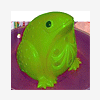-
Welcome to the eG Forums, a service of the eGullet Society for Culinary Arts & Letters. The Society is a 501(c)3 not-for-profit organization dedicated to the advancement of the culinary arts. These advertising-free forums are provided free of charge through donations from Society members. Anyone may read the forums, but to post you must create a free account.
PBS "Mind of a Chef" – Season 1, David Chang
-
Similar Content
-
- 66 replies
- 7,358 views
-
- 28 replies
- 8,082 views
-
- 1 reply
- 724 views
-
Cooking with "Six Seasons: A New Way with Vegetables," by Joshua McFadden 1 2 3 4 12
By blue_dolphin,
- 287 replies
- 90,095 views
-
- 1 reply
- 921 views
-
-
Recently Browsing 0 members
- No registered users viewing this page.





Recommended Posts